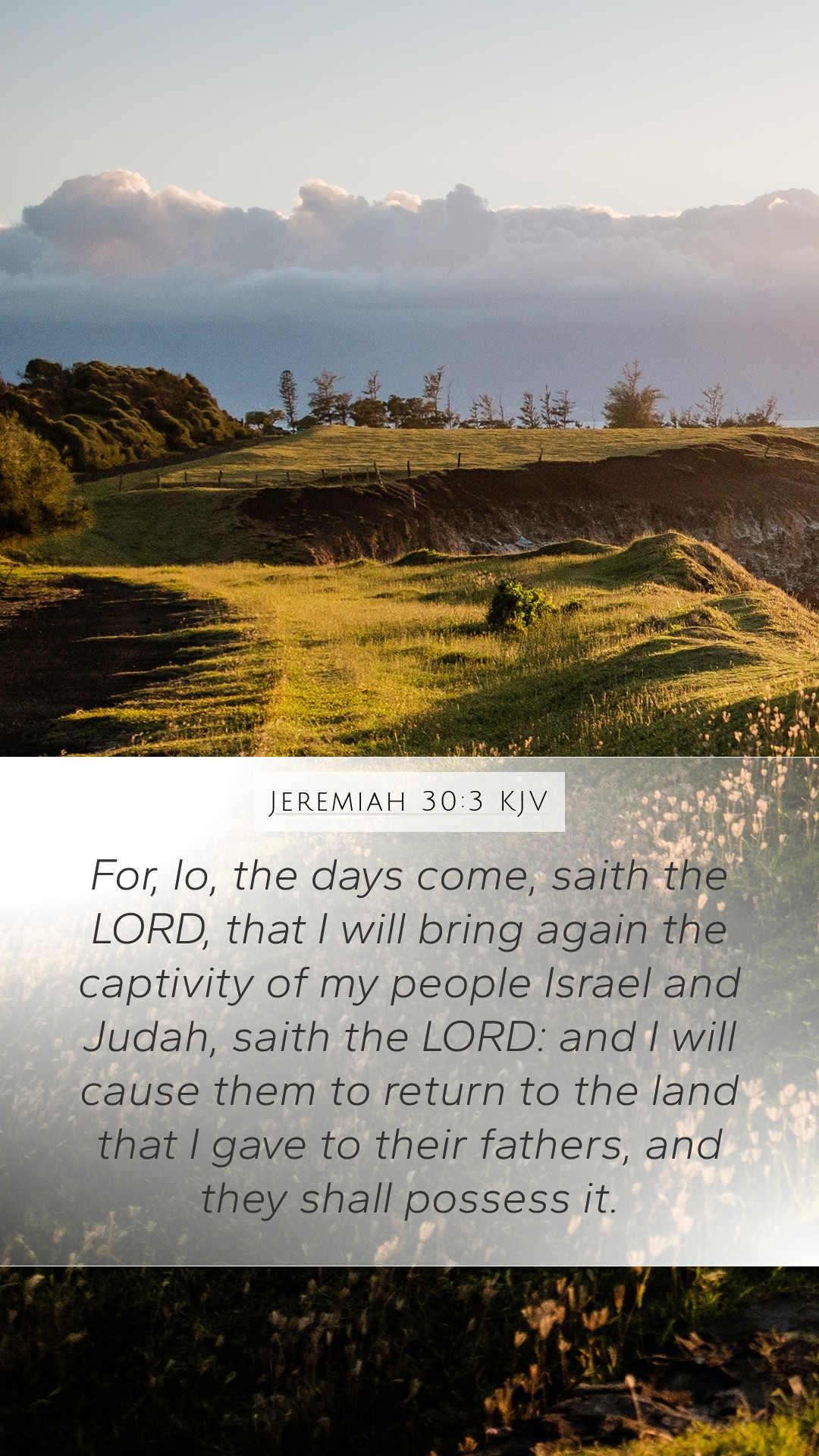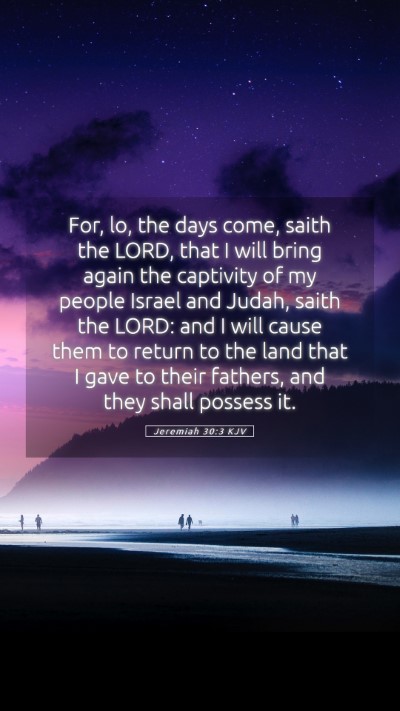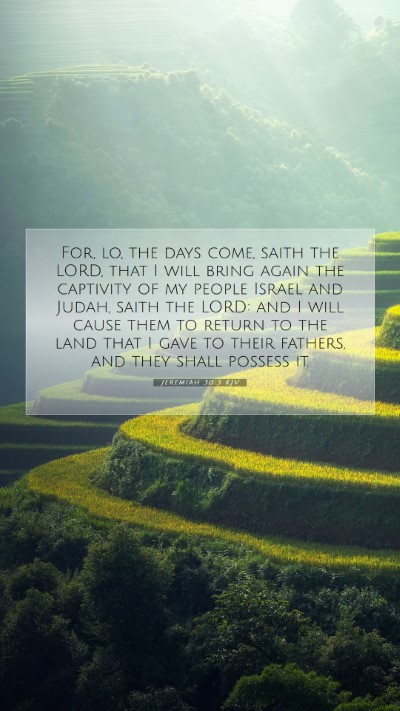Jeremiah 30:3 - Understanding the Promise of Restoration
Bible Verse: "For, lo, the days come, saith the Lord, that I will bring again the captivity of my people Israel and Judah, saith the Lord: and I will cause them to return to the land that I gave to their fathers, and they shall possess it." (Jeremiah 30:3)
This verse from Jeremiah encapsulates a significant promise of restoration and hope amidst despair. The biblical interpretation of this passage involves understanding the context of Israel and Judah's exile and the Lord's commitment to redeem and restore His people.
Context and Background
The Book of Jeremiah is steeped in prophecies directed towards the kingdom of Judah during a time of severe turmoil and impending judgment. The Hebrew people faced impending destruction and exile due to their unfaithfulness to God, and the words of Jeremiah served both as a warning and as a promise of future restoration.
Meaning and Significance
1. A Promise of Restoration: Matthew Henry notes that this verse reflects God's assurance that despite the current sufferings, He will restore His people, Israel and Judah. The mention of "days to come" signifies hope that transcends current circumstances.
2. Return from Exile: Albert Barnes emphasizes the importance of returning to the land given to their fathers. This is not merely a physical return but a spiritual awakening where the people recognize God's faithfulness and sovereignty.
3. Inheritance of the Land: Adam Clarke points out that the promise to possess the land symbolizes the inheritance of divine blessings. It highlights God’s covenant relationship with Israel, reaffirming their identity as His chosen people.
Implications for Biblical Exegesis
This verse serves as an anchor for understanding how God's plans for His people ripple across generations. It underscores themes of hope, redemption, and divine promise, vital for anyone undertaking scripture analysis or Bible study insights.
- Historical Context: The plight of Israel and Judah during the Babylonian exile provides crucial context to appreciate the depth of this promise.
- Theological Reflection: The restoration signifies not only a geographical return but a restoration of relationship and covenant fidelity.
- Application: For contemporary readers, this verse encourages trust in God’s promises during times of personal or communal crisis.
Related Bible Cross References
- Isaiah 49:13-16 - A promise of comfort and restoration.
- Ezekiel 34:11-16 - God as the shepherd who seeks His lost sheep.
- Amos 9:14-15 - Reaffirmation of the restoration of Israel.
Conclusion
In conclusion, Jeremiah 30:3 stands as a beacon of hope, representing God's commitment to redeem and restore His people. Through various insights from public domain commentaries, one can grasp the profound meanings and implications of this verse, enhancing biblical understanding and study.
For those engaged in Bible study groups or utilizing Bible study tools, this verse serves as an example of how to examine the layers of meaning present in scripture. The healing promises encapsulated here encourage deeper Bible study lessons and application of Bible verses to daily life.


